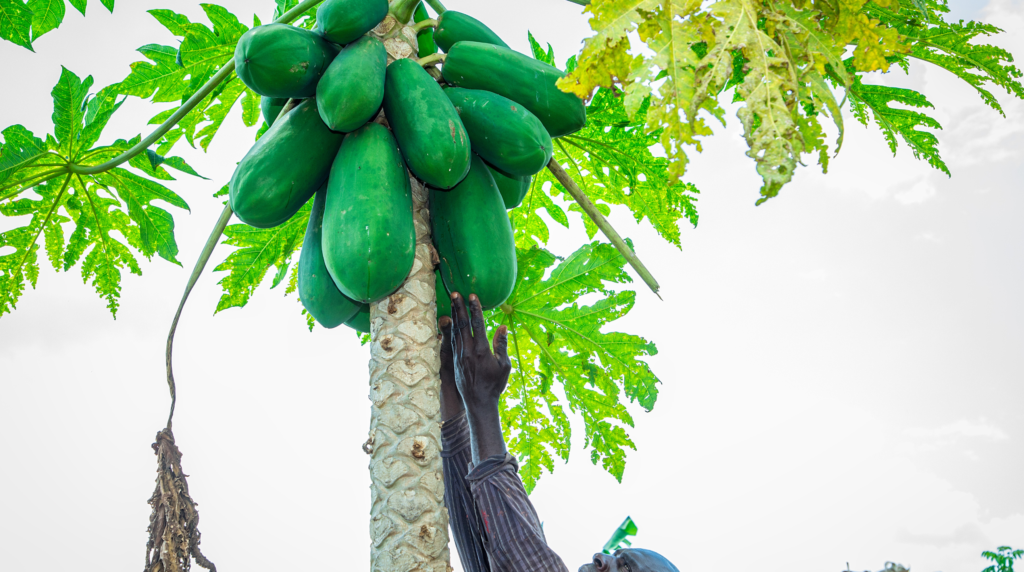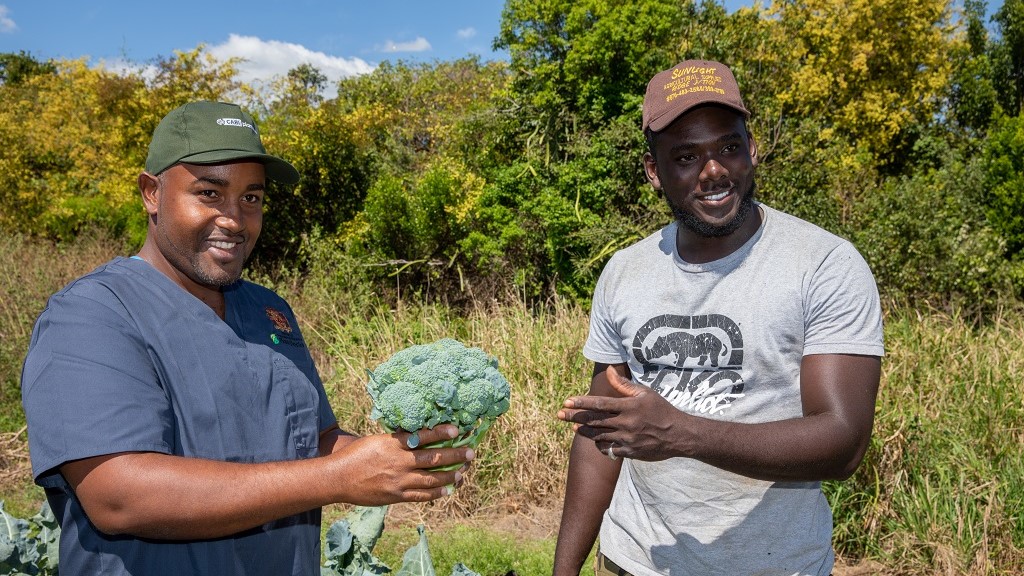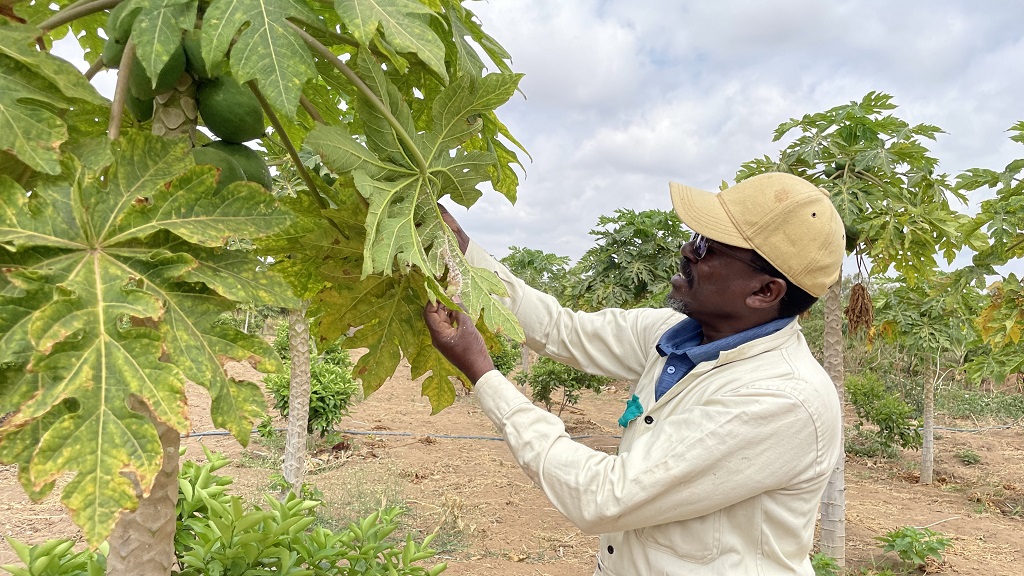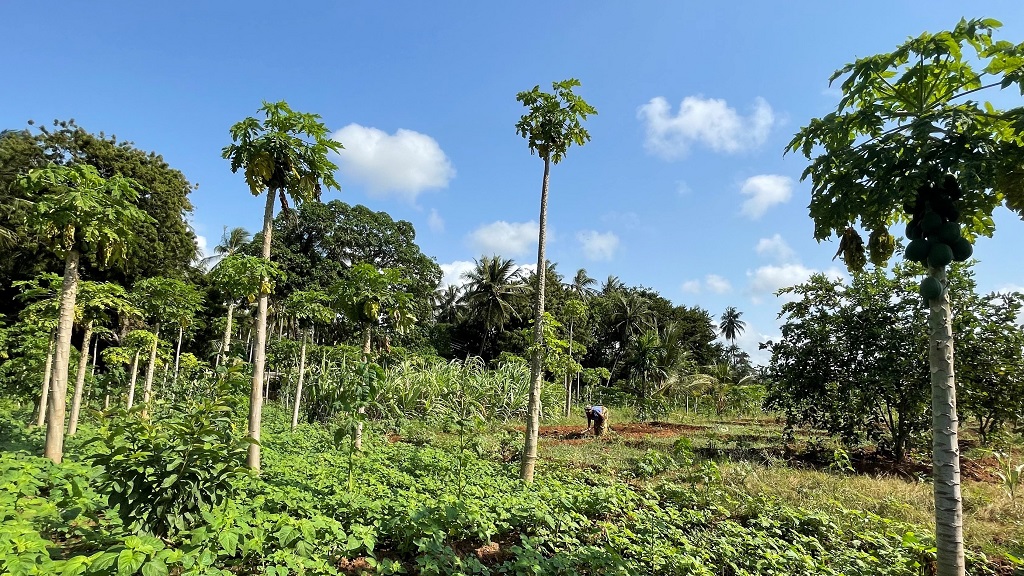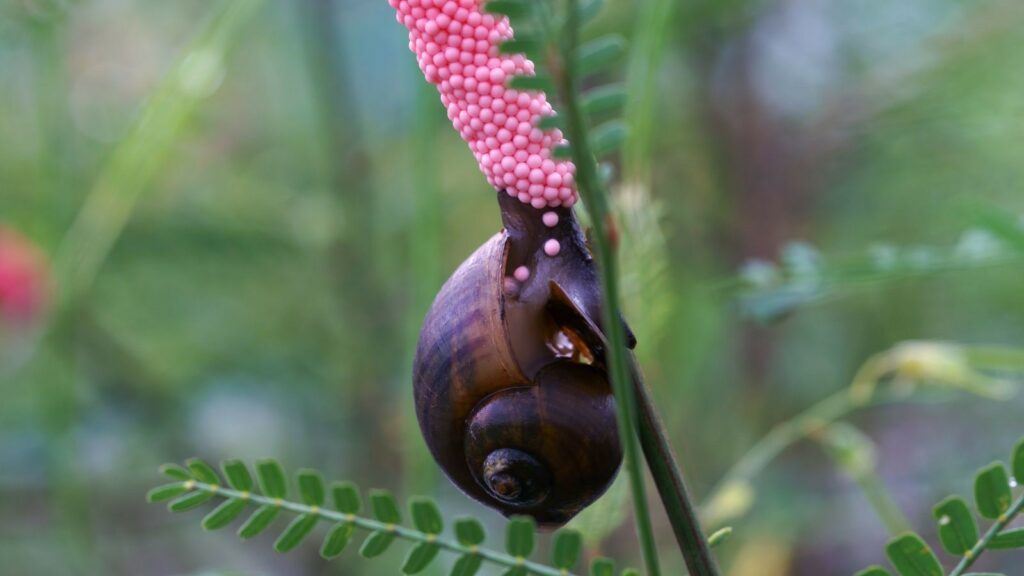Changing behaviour around pesticide use can make farming safer – here’s how
Chemical pesticides can be an important part of a pest management strategy, helping to prevent food losses and waste. Synthetic fungicides, herbicides and insecticides can effectively control pest threats, and this is beneficial for food production. However, pesticides have a downside. They pose a health risk to consumers, farmers, animals and the environment. These risks…
Parasitic wasps play pivotal role in Kenya’s papaya mealybug control
Papaya mealybug (Paracoccus marginatus) is a devastating papaya pest. It impacts many countries in East and West Africa. Infestations can result in significant economic losses, posing a threat to the livelihoods of smallholder farmers. On average, the pest can cause anywhere from 53% to 100% crop losses, costing £2,224 per hectare annually. Its impact on…
How a tiny wasp can save the livelihoods of papaya farmers
“We have a problem with the attack of mealybugs, which are becoming a menace to the production of papayas. I fight them, but they are also fighting back.” Ben is a farmer in Machakos County, Kenya, east of the nation’s capital, Nairobi.
CABI shares important new evidence on the legacy of Plantwise
CABI has published a working paper assessing the legacy of Plantwise programmes in six countries: Nepal, Pakistan, Ghana, Kenya, Malawi, and Jamaica. The paper, entitled Plantwise Sustainability: Two Years on, finds that the sustainability of a Plantwise programme hinges heavily on the country in question. This means that while it is difficult to engineer or…
Controlling the papaya mealybug pest – progress made in coastal Kenya
An initiative to combat the destructive papaya mealybug in Kenya is reaping rewards. A natural predator – a parasitic wasp – has been introduced to coastal counties to help control the pest. This tiny wasp is helping to prevent the damage caused by the mealybug. It’s not only helping to save papaya farms. It’s safeguarding…
How has a ‘writeshop’ helped to address invasive apple snail in Kenya?
Invasive species, like apple snail, are a threat to food security. It’s important that they’re quickly managed before they start to spread. One of the best ways to do this is to share plant health knowledge with smallholder farmers. And writeshops are an excellent tool for gathering evidence-based information to do this. In this blog,…





